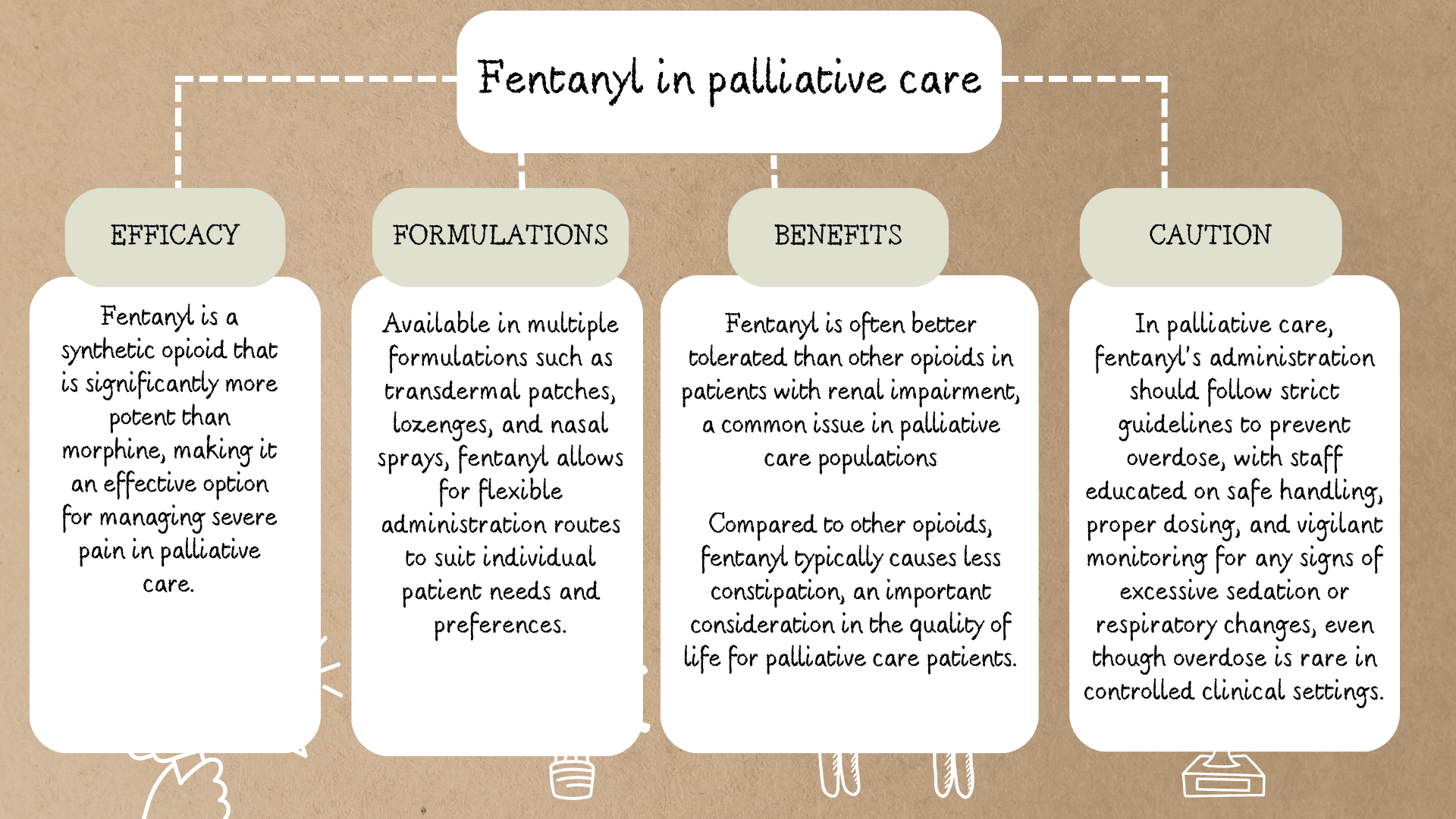Download A4Medicine Mobile App
Empower Your RCGP AKT Journey: Master the MCQs with Us!

Fentanyl, a potent synthetic opioid analgesic, has a pivotal role in palliative care, providing relief from severe and persistent pain that often accompanies serious illnesses. With its rapid onset and significant potency—about 100 to 150 times greater than morphine—fentanyl offers a powerful option for pain management. Its use in palliative care is particularly valuable due to its versatility in various formulations, allowing for tailored approaches to meet individual patient needs.
It acts primarily on the mu-receptor in the central nervous system to alter the perception of and response to pain, providing significant analgesia.
Fentanyl's utility in palliative care extends beyond its effectiveness. It is often better tolerated by those with renal impairment, a common concern in palliative populations. Additionally, it tends to cause less constipation—a frequently distressing side effect of opioid therapy—than other strong opioids.
However, the potency and risk of respiratory depression associated with fentanyl necessitate cautious use, with consideration for each patient's clinical situation. It is not suitable for acute pain or opioid-naïve patients due to the risk of overdose and significant side effects. Recognizing signs of overdose, such as severe respiratory depression or muscular rigidity, and having a plan for immediate management, including the use of opioid...
Try our Free Plan to get the full article.